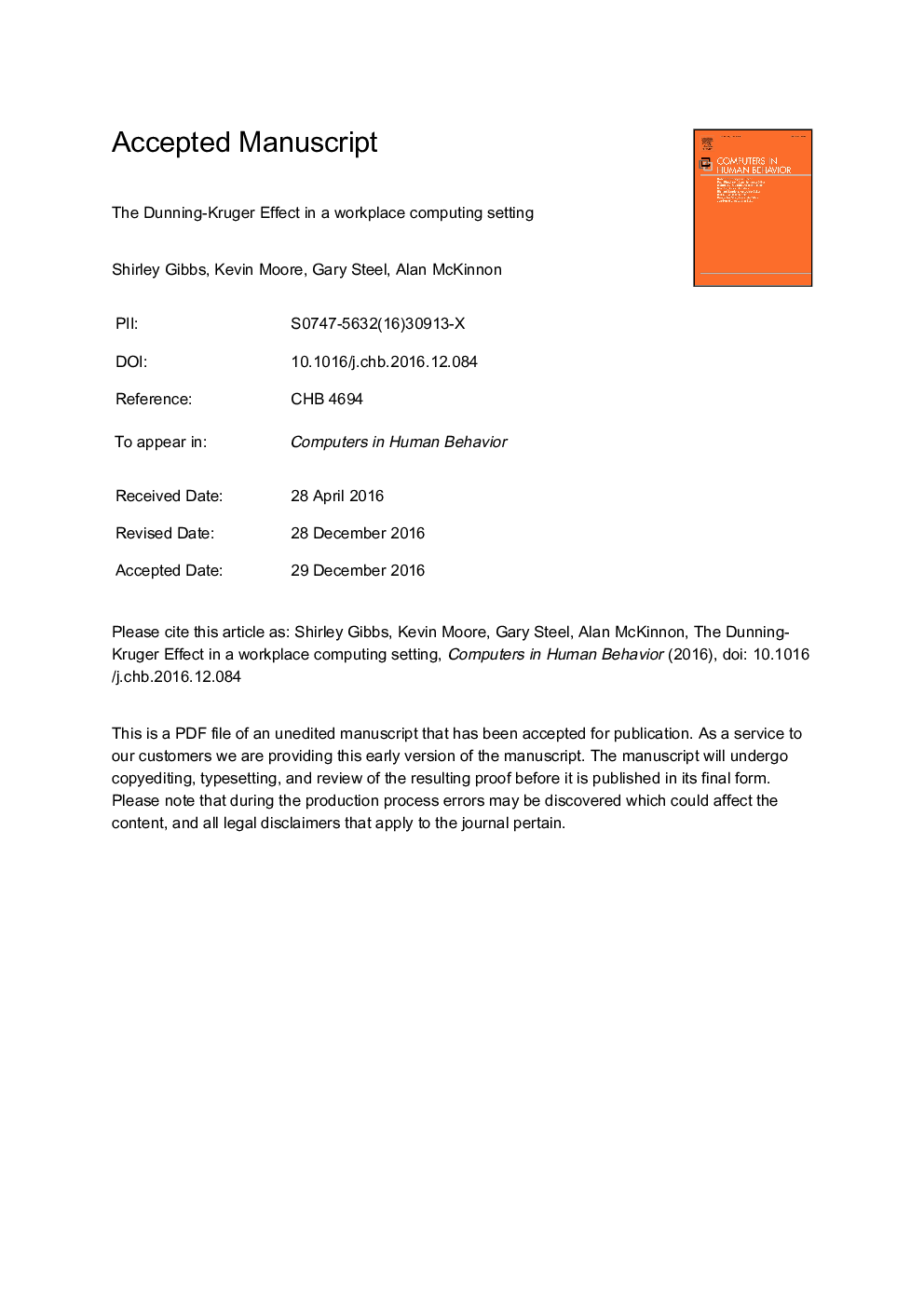| Article ID | Journal | Published Year | Pages | File Type |
|---|---|---|---|---|
| 4937127 | Computers in Human Behavior | 2017 | 22 Pages |
Abstract
This study investigated the Dunning-Kruger Effect in the domain of workplace computing. The Dunning-Kruger Effect is present in situations where people with lower levels of skill or knowledge in a domain do not recognise their actual level of skill. Participants in this study were asked to make an estimate of the size of the domain of end-user computing as it relates to the greater domain of computing as a whole. It should be noted, that although end-user computing is present in many situations, on the whole its undefined nature is unappreciated by many users. A measure of perception was used as a way of investigating if people, who appreciate the extent of a domain, will be more conservative in their estimations of it, their knowledge in it and that same knowledge of an average person or peer. Results indicate that the Dunning-Kruger Effect is present in workplace end-user computing in situations where self-assessments are based on what a person believes there is to know in a domain. However, this effect was not present in situations where participants made estimations of the knowledge of workplace end-user computing of an average end-user. In this case, these estimations appeared to be based on what a person believed they knew not what they believed there was to know. Technology is advancing at a fast rate and end-user computing applications are not immune to this change. This study is important as it highlights a domain, which, due to its fast-changing nature, is near impossible to define but one that is critical to modern workplaces. The study shows that neither employers nor employees currently enough of an appreciation of a domain to understand its extent and how misinterpreting skill level can pose challenges to both groups.
Keywords
Related Topics
Physical Sciences and Engineering
Computer Science
Computer Science Applications
Authors
Shirley Gibbs, Kevin Moore, Gary Steel, Alan McKinnon,
